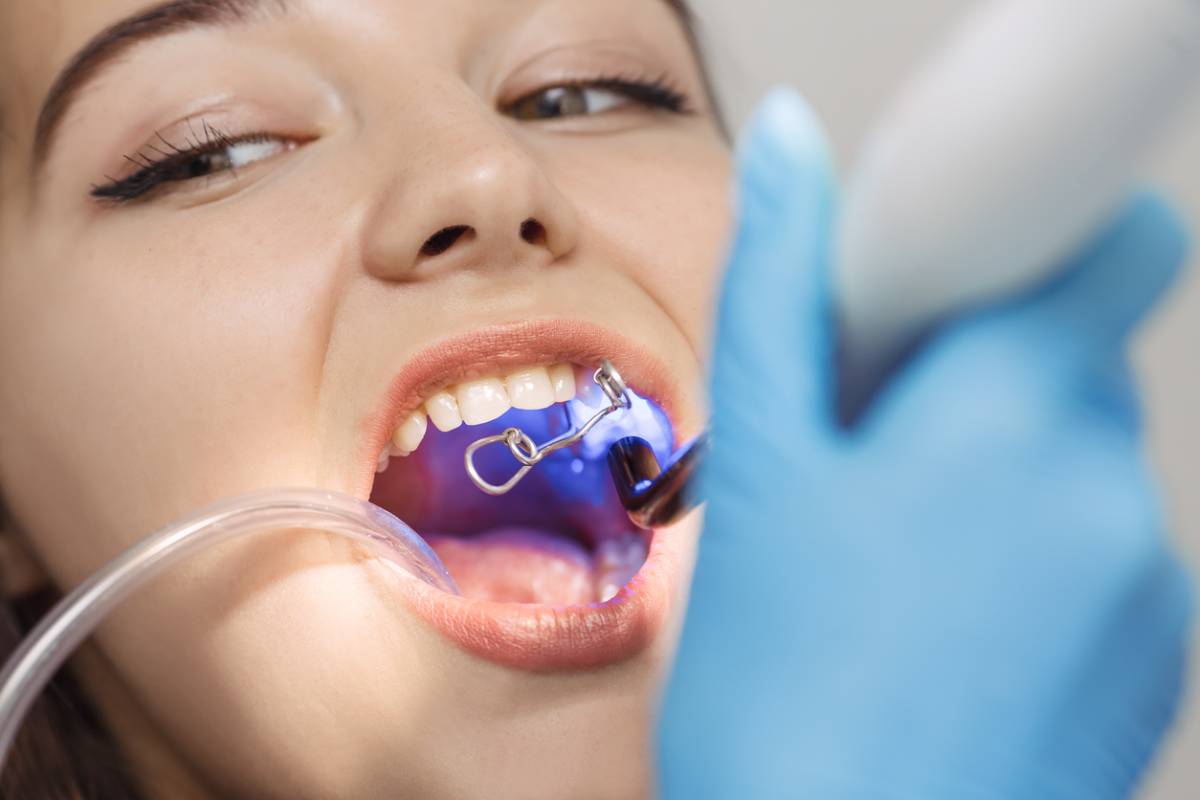Imagine flashing a radiant smile, one that not only lights up your face but gives you that boost of confidence you need. Cosmetic dentistry has optimized and innovated the cosmetic dentistry world. Dental bonding offers a quick fix for chips, gaps, and discoloration, transforming imperfect teeth into a picture-perfect grin that can last up to a decade. Talk to an experienced dentist about treatment options for you, how long dental bonding lasts, and what you can expect from this transformative solution for common dental problems. It is important for your quality of life and confidence to take your oral health seriously. You will be happy you did, and your teeth and gums will thank you for it, too.
What Is Dental Bonding?
Dental bonding is used for cosmetic purposes in most cases. Primarily, you can enhance the appearance of your smile by fixing minor fractures or breaks. Dental bonding can also be used to camouflage discoloration and minor staining. It has even been used to address gaps and improve the shape of your tooth.
It is a popular choice if you are seeking to correct minor imperfections because it is effective, can last years, and is non-invasive. Additionally, it is more cost-effective than other procedural alternatives available. Since dental bonding is generally considered a cosmetic procedure, this may be of importance since it is likely any costs incurred will be out of pocket.
How Long Does Dental Bonding Last?
The longevity of your dental bonding can vary widely, with most generally lasting between 3 and 10 years, but with proper care, it could last longer. Achieving the most out of your dental bonding can be done by modifying your lifestyle habits and proper oral hygiene. To ensure your dental bonding lasts, consider careful eating habits, proper cleaning, and regular dental visits. Good oral practices are not only good for your dental bonding but also for the overall health of your mouth.
How It Works
Your dentist will use a tooth-colored resin composite to correct any concerns you discussed prior to your bonding appointment. The procedure is simple and quick, starting with:
- Matching the proper resin shade to your natural tooth color.
- To ensure the artificial enamel has something to hold on to, the surface of your tooth is prepared by roughening it.
- A conditioned liquid is applied to help the composite material stick securely.
- Resin is applied man,ipulated, and smoothed to the desired shape.
- A special light is used to cure the resin and bond the material to the surface of your tooth.
- With precision, your tooth is then finely shaped and polished to look natural.
Factors Affecting Longevity
Several factors can impact the lifespan of your dental bonding, including:
- Oral hygiene
- Eating habits
- Teeth grinding
- Smoking
- Staining agents
- Bonding material quality
- Dentist skill and experience
Oral Habits and Care
Keeping your teeth and gums clean is important if you want them to last as long as possible. To keep your mouth clean and healthy, it is recommended that you brush and floss twice daily. Regular check-ups and cleanings with your dental provider are always a good route when working to optimize the longevity of your dental bonding. Avoid habits like chewing on objects, tearing things open with your teeth, or biting your fingernails. These behaviors can weaken the bond on your tooth and cause your dental bonding to come loose prematurely.
A Leading Solution For Common Problems
Dental bonding offers a quick and cost-effective solution for minor dental imperfections, with a lifespan that can extend up to a decade with proper care. While not as durable as some other cosmetic dental treatments, its non-invasive nature and immediate results make it an attractive option for many. The longevity of dental bonding ultimately depends on a combination of factors, including oral hygiene habits, lifestyle choices, and regular dental check-ups.
By understanding the limitations of bonding and committing to good oral practices, you can maximize the lifespan of your dental bonding and maintain a beautiful, confident smile for years. Your dentist is your best resource for determining if dental bonding is the right choice for your needs and discuss how best to preserve your smile. If you have concerns about minor chipping, cracking, or discoloration, dental bonding may be an excellent non-invasive solution. Always consult with experienced dental professionals to safeguard your smile.
Reference:
Cleveland Clinic. (2022). Dental Bonding.



